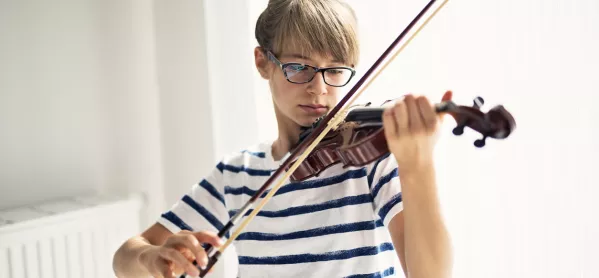Music and PE are the GCSE subjects with the widest disadvantage gaps, according to a new report published today.
The Education Policy Institute found that poorer students are, on average, 20.1 months behind their wealthier peers at GCSE music, while disadvantaged students are also 38 per cent less likely to take the subject.
News: Attainment gap ‘will never close’ if trends continue
GCSEs: Disadvantaged pupils are getting left behind
News: ‘Almost no progress’ on closing GCSE gap since 2017
Exclusive: Covid-19 ‘widens achievement gap to a gulf’
And in PE, the gap is 17.7 months, while poorer students are 47 per cent less likely to take the subject than their advantaged peers.
The disadvantage gap at GCSE
“This may be driven by parental investments in sport and music outside of school, such as private music and swimming lessons, that are less accessible for disadvantaged pupils,” the report says.
“Disparities in schools’ ability to provide equipment and facilities (such as playing fields and musical instruments) may also play a role,” it adds.
Given that English and maths are effectively compulsory at GCSE, the report finds that they “have relatively large disadvantage gaps compared to other subjects: 17.5 months in maths and 16.2 months in English”.
While the sciences have “middling” disadvantage gaps, the report also finds that poorer students are 15 per cent more likely to take combined sciences than their advantaged peers, and 50 per cent less likely to take dual or triple sciences at GCSE.
Languages tend to have smaller disadvantage gaps but are also taken by a smaller proportion of students.
In some community languages - Gujarati, Arabic, Persian and Biblical Hebrew - disadvantaged students do better than their wealthier peers.
“This may be because disadvantaged pupils who take these subjects are bilingual or fluent in these languages and thereby score more highly than their peers despite being socioeconomically disadvantaged,” the report says.
Poorer students are also more likely to take community languages at GCSE - they are 246 per cent more likely to take Persian, 228 per cent more likely to study Arabic, 89 per cent more likely to take Biblical Hebrew and 84 per cent more likely to take Gujarati.
However, disadvantaged students are 83 per cent less likely to study classical Greek, and 73 per cent less likely to study Latin than wealthier peers.
The report also finds that geography has a wider disadvantage gap than religious studies, despite similar participation rates. Poorer students are 17.7 months behind their peers at geography GCSE, compared with a gap of 11.3 months in religious studies.




